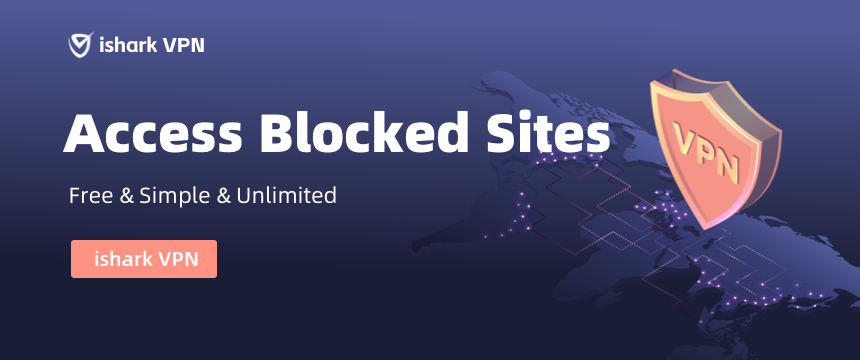VPN and Digital Privacy: Exploring Data Collection, Privacy Policies, and User Protection
ishark blog article
In the digital age, data collection and privacy rights have become hotly debated topics.
This article delves into the role of VPN in protecting users' digital privacy and discusses the importance of considering privacy policies and data protection measures when choosing a VPN.

I. How VPN Safeguards Users' Digital Privacy
Data Encryption: VPN establish secure encrypted tunnels for transmitting user data, making it unreadable to hackers even if intercepted, thus safeguarding users' digital privacy.
IP Address Concealment: VPN hide users' real IP addresses and substitute them with the VPN server's IP, making it more challenging to track users' online activities and location, enhancing their anonymity and privacy.
Wi-Fi Security: Public Wi-Fi networks are vulnerable to hackers and data snoopers. VPN provide an additional security layer, protecting users from potential data theft on public Wi-Fi.
Bypassing Geographical Restrictions: VPN allow users to select different server locations, enabling access to blocked websites and services, ensuring freedom of information and content access.
II. Factors to Consider in Choosing a VPN for Digital Privacy
Logging Policies: Users should carefully review VPN providers' logging policies. Some providers may log user activities and connection information, posing a risk to users' digital privacy. Opting for a no-logs or minimal-logs VPN is more reliable.
Data Protection: Users should choose VPN providers with robust data protection measures. These providers typically employ secure storage and transmission methods, ensuring users' personal data is not leaked or misused.
Server Locations: The location of VPN servers is crucial. Users should opt for servers located in privacy-friendly countries with stringent data protection laws and privacy policies.
Security Performance: Users should select VPN that employ advanced encryption algorithms and security protocols. These technologies can more effectively protect users' digital privacy and prevent data breaches by hackers and intruders.
User Reviews and Reputation: Users should consult other users' reviews and reputation to gauge a VPN provider's credibility and service quality. Trustworthy VPN providers often have positive user feedback and reputation.
III. The Future Outlook of VPN and Digital Privacy
As the internet continues to evolve, issues surrounding digital privacy will continue to be in the spotlight. VPN, as effective privacy protection tools, will play an increasingly critical role in safeguarding users' data and privacy.
As technology advances, VPN security and performance will also improve, providing users with stronger digital privacy protection.
Moreover, governments and regulatory bodies are expected to impose more stringent regulations and requirements concerning data privacy.
VPN providers will need to adapt to these changes and implement more robust measures to protect users' digital privacy.

Conclusion:
In the digital era, users' digital privacy rights are of utmost importance. VPN serve as powerful tools for safeguarding users' data security and privacy online.
Through data encryption, IP address concealment, and secure Wi-Fi connections, VPN protect users' digital privacy and personal data.
When selecting a VPN, users should carefully consider the provider's privacy policies, data protection measures, and security performance to ensure they choose the right VPN service for genuine digital privacy protection.









